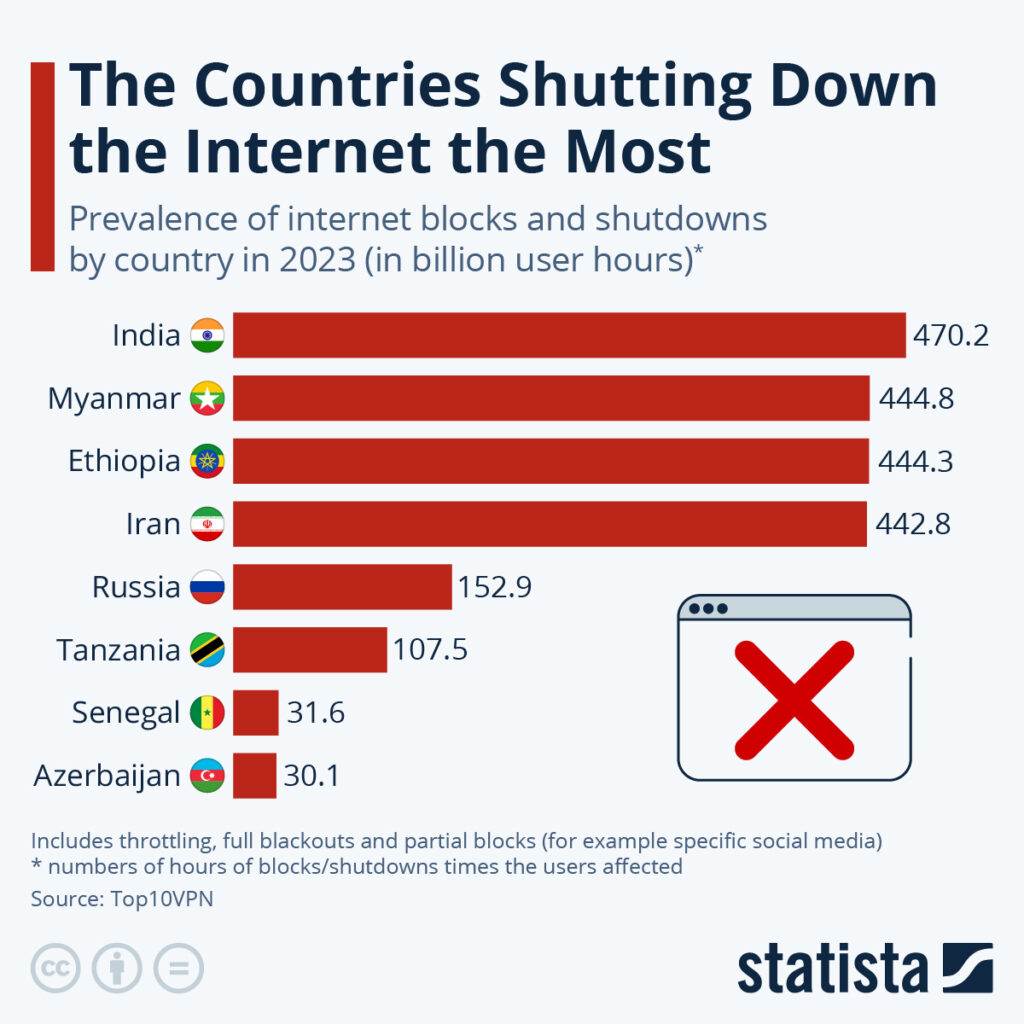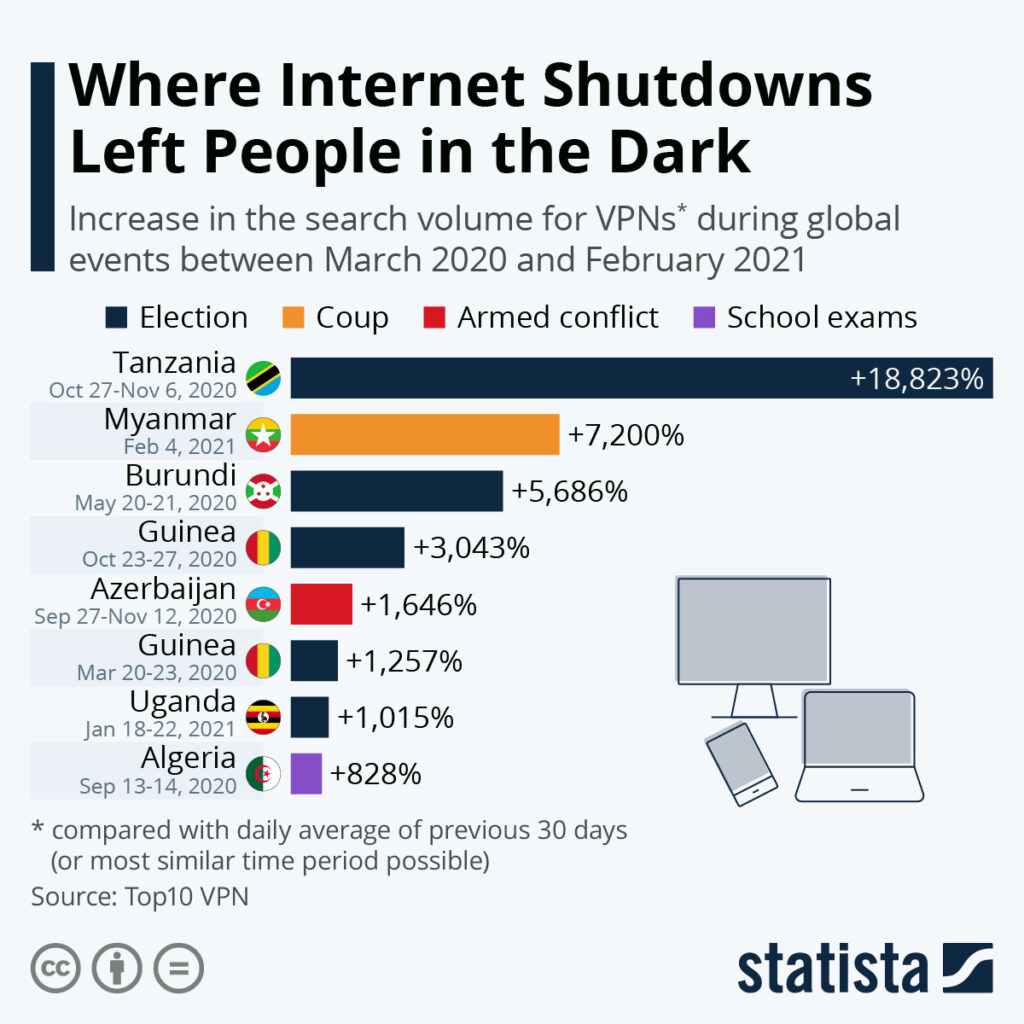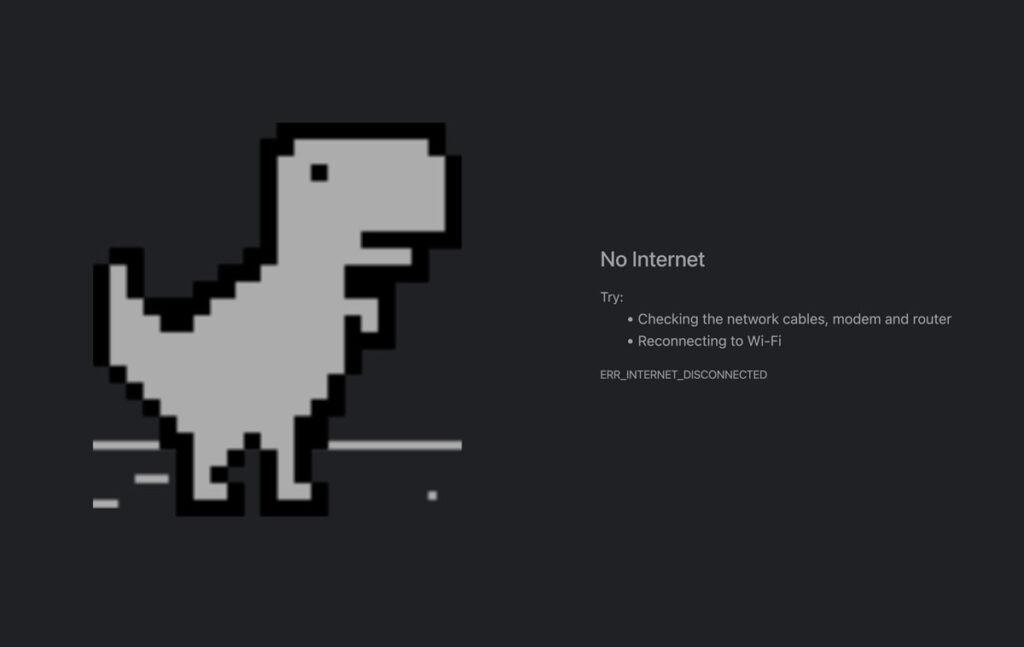Internet shutdowns during elections pose a significant threat to democratic processes
In 1839, when Edward Bulwer-Lytton stated that “the pen is mightier than the sword”, he had no way of knowing that this would transcend the passage of time, remaining relevant in the internet age.
Social media, in particular, has empowered global citizens. Most public expression of ideas, including political pronouncements, takes place on the internet, replacing the telephone, radio, and television, all of which have a finite capacity for conveying and sharing information. For the first time, the internet offered three unique features that no other media had; the ability to generate content oneself, interactivity among users, and the ability to start network relationships with others.
Political discourse, the mobilisation of voters, and holding leaders accountable have become the norm as societies develop, with social media platforms increasingly playing an important role in amplifying the voices of electorates and empowering individuals to call governments to account. As a continent, Africa is no exception to this movement, with an estimated 570 million people with access to the internet and 340 million with access to social media, according to a 2022 Statista report. Earlier this year, Statista also forecasted that the number of internet users in Africa would increase by 377.3 million users, or by 51.79%, between 2024 and 2029.

In this context, therefore, the increase in government internet shutdowns, especially during periods of political sensitivity such as elections, poses a significant threat to freedom of expression and democratic processes on the continent. Governments have justified shutdowns on the premise that they are a measure to maintain security and public order, yet they undeniably have the effect of stifling dissent and limiting the flow of information.
The truth is that these internet shutdowns have the immense propensity to effectively stifle dissent and limit the flow of information. According to a 2020 Access Now report, sub-Saharan Africa accounted for more than a third of the world’s internet shutdowns during elections in countries that included Uganda, Zambia, Tanzania, Benin, Mali and Zimbabwe.
Reporting on 2023 in May this year, Access Now said: “In 2023, we saw a resurgence of internet shutdowns in Africa, with 17 incidents recorded in nine countries, nearly double the nine shutdowns in seven countries in 2022. This spike in 2023 raises serious concerns about the ongoing use of shutdowns as a weapon of control in the region.”
The organisation said 58.8% of these related to protests rather than elections in Senegal, Gabon, Ethiopia, Guinea, Mozambique, and Somaliland. On the other hand, Access Now also commends the Democratic Republic of Congo (DRC), Nigeria, and Sierra Leone for making and upholding commitments to maintain internet access throughout their elections.

While shutdowns have a societal impact that significantly reduces citizens’ ability to exercise their democratic rights and access information, their economic impact is also profound.
According to a Collaboration on International ICT Policy in East and Southern Africa (CIPESA) report, African countries lost an estimated $2.16 billion due to internet shutdowns in 2020 alone. This figure includes e-commerce losses, business operations disruptions, and decreased productivity.
But despite the challenges posed by internet shutdowns, African citizens and civil society groups have shown remarkable resilience and adaptability. Many have turned to alternative communication methods, such as virtual private networks (VPNs), satellite internet, and offline messaging apps like Bridgefy, to circumvent government censorship. These tools have enabled activists and ordinary citizens to continue their work and maintain their digital presence, even during shutdowns. During the 2019 elections in Nigeria, for example, digital rights groups launched awareness campaigns to educate the public about using VPNs and other tools to stay connected in case of a shutdown.
“The pen is mightier than the sword” thus speaks volumes about the power of communication and information in shaping societies, a principle acutely relevant in the context of internet shutdowns during elections in Africa. These deliberate disruptions, orchestrated by governments, aim to stifle dissent and control the flow of information, undermining democratic processes. By severing access to social media platforms and other online communication channels, authorities effectively silence the voices of millions, curtailing their ability to engage in political discourse, report injustices, and mobilise for collective action.
This digital censorship not only infringes upon fundamental human rights but also erodes public trust in electoral integrity, as the free exchange of ideas and transparency are vital to the legitimacy of any democratic election.
It is in this light that the metaphorical pen, embodied today by digital communication, remains a potent force for advocacy and accountability, and its suppression is a troubling testament to the lengths some regimes will go to maintain power.
Elections in which communication was disrupted
UGANDA: On Wednesday, 13 January 2021, the night before Uganda’s general elections, the Uganda Communications Commission (UCC) mandated that all telecom operators and internet service providers indefinitely shut down their internet gateways. The entire nation experienced a blackout starting at 7pm local time, effectively cutting off digital communication just as the country prepared to vote. The shutdown was seen as a tool to dismantle the campaign of the opposition, particularly as the general population and civil society organisations heavily relied on social media to mobilise and share information.
BENIN: In 2019, Benin’s government blocked access to social media platforms during an election, citing the need to maintain public order. Civil society groups criticised the blackout, stating that it infringed on citizens’ rights to freedom of expression and access to information. Human Rights Watch reported that the shutdown impacted the transparency of the election process and limited the ability of election monitors to report irregularities. The internet was restored after the election was over.
ZAMBIA: Zambian authorities imposed a deliberate blackout on social media platforms, including WhatsApp, Twitter, Instagram, and Facebook, during the country’s presidential election in August 2021. This orchestrated shutdown gravely impaired citizens’ ability to communicate and access vital information throughout the electoral process, profoundly affecting their daily lives, work, education, and social connections.
ZIMBABWE: During Zimbabwe’s elections last year, there were reports of significant disruptions to internet access, raising concerns about the impact on the democratic process. Until and during the elections, internet connectivity was notably degraded, with periods of restricted access. This created difficulties for citizens attempting to stay informed and participate in the electoral process. The Zimbabwean government has a history of imposing internet shutdowns during political unrest to quell protests and limit the spread of dissenting opinions. This situation underscores ongoing challenges to Zimbabwe’s electoral integrity, with repeated concerns over the ruling party’s attempts to control information flow and restrict opposition activities.

Sandra Chauke
Sandra Tiyani Chauke, a dedicated academic and legal professional at 33, has established herself in legal research and education. Holding a Bachelor's degree in law from the University of Limpopo, she completed a Masters in international commercial law and a postgraduate diploma in labour law from the University of Johannesburg. Currently, she is pursuing a doctorate in human rights law at the University of Fort Hare. Sandra's expertise extends to policy development, human rights, and institutional advancement in Africa.




1 Comment
Detailed, I enjoyed reading this piece.